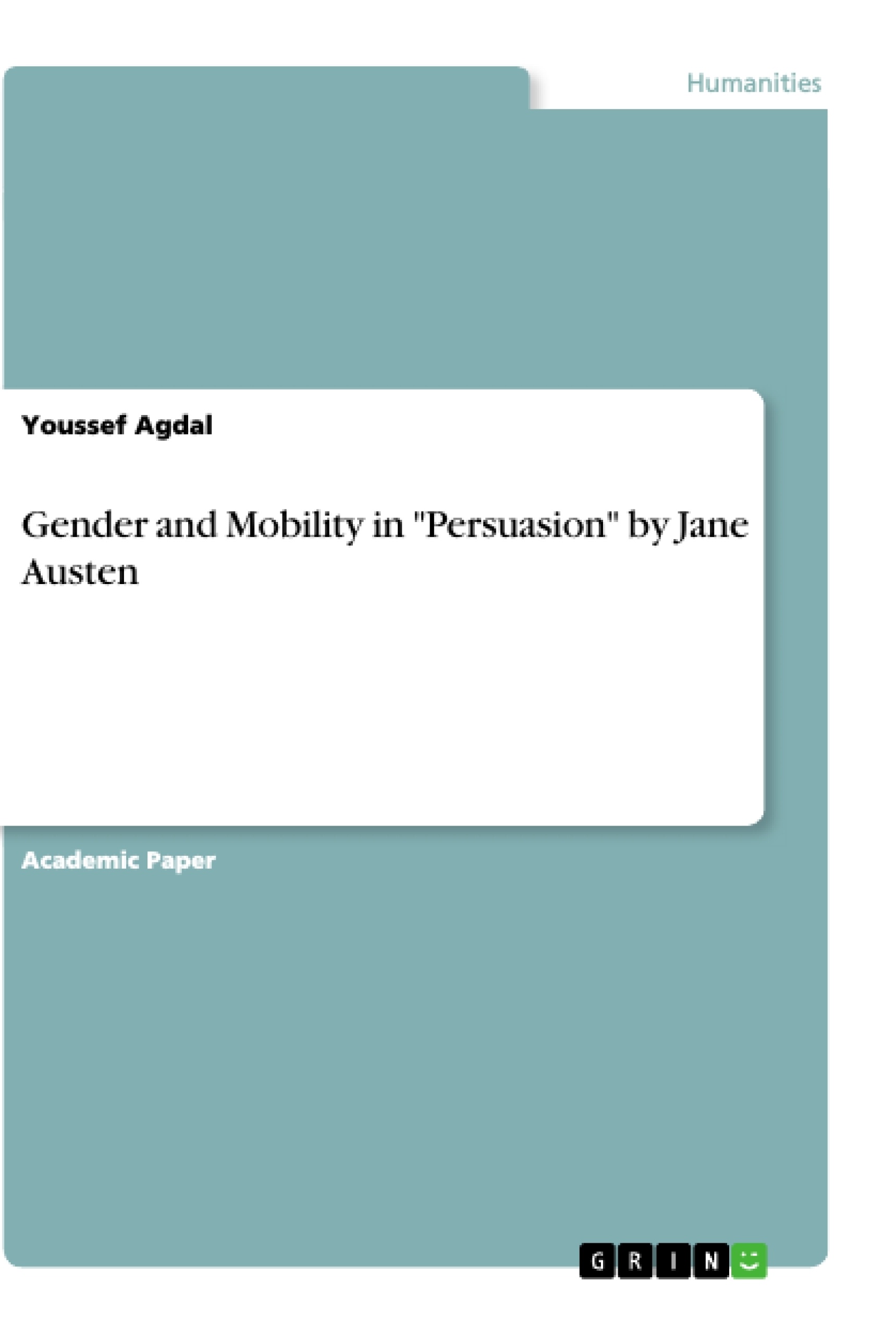This paper examines how women's mobility is hindered by their economic dependence on men. It explores how the Georgian era played an essential role in shaping gender roles in the novel, taking into consideration the point of view of Jane Austen as a woman of the English gentry in rural England at the turn of the 19th century.
This paper questions how different events, decisions, and actions, related to mobility, are expected based on what Jane Austen sees as natural difference between males and females. The focus is on events that stress how mobility fosters men's empowerment and deepens women's passivity.
The analysis also clarifies how men's mobility enhances their freedom and provides distraction and enjoyment. Women's mobility is also hindered by the female traditional roles of mothers, caregivers, and assistants; it is also delayed by the fear of the unknown outside. Women's movement is usually decided by men, and they only accompany and assist men to fulfill their plans, or they go out to enjoy nature and visit other families.
Inhaltsverzeichnis (Table of Contents)
- Introduction
- Plot Summary
- Aspects and Forms of Mobility:
- Capability and Empowerment
- Economic Dependence, Subordination and Passivity
- Suffering
- Conclusion
Zielsetzung und Themenschwerpunkte (Objectives and Key Themes)
This term paper examines how women's mobility is hindered by their economic dependence on men in Jane Austen's Persuasion. The paper explores how the Georgian era shaped gender roles and how Austen, as a woman of the English gentry, views the natural differences between men and women. It analyzes how mobility empowers men and fosters women's subordination and passivity. The paper focuses on events that reveal how men's movement enhances their freedom and enjoyment while women's movement is often restricted by traditional roles and the fear of the unknown.
- Gender roles and mobility in the Georgian era
- Women's economic dependence and its impact on their freedom
- The influence of social status and wealth on relationships
- The complexities of love, marriage, and societal expectations
- The portrayal of women's agency and limitations
Zusammenfassung der Kapitel (Chapter Summaries)
The paper begins by providing a brief introduction to the context of the study and the specific focus on women's mobility in Persuasion. The second chapter summarizes the plot of the novel, introducing the main characters, their relationships, and the setting. It outlines the family's financial struggles and their subsequent move from Kellynch Hall. The third chapter delves into the theme of mobility, exploring how men's movement is often associated with empowerment and advancement, while women's mobility is limited by societal expectations and their economic dependence on men.
Schlüsselwörter (Keywords)
The key concepts and themes explored in this paper include gender roles, mobility, economic dependence, societal expectations, empowerment, subordination, passivity, love, marriage, social status, and the Georgian era. These elements are crucial to understanding the complexities of women's lives and the dynamics of power in Jane Austen's Persuasion.
Frequently Asked Questions
What is the main focus of the paper on Jane Austen's 'Persuasion'?
The paper examines how women's mobility is restricted by their economic dependence on men and traditional social roles during the Georgian era.
How does mobility differ between men and women in the novel?
Mobility for men is associated with empowerment, freedom, and enjoyment, whereas for women, it often results in passivity and is usually decided by the men in their lives.
What role does the Georgian era play in shaping gender roles?
The Georgian era established strict expectations for women as caregivers and assistants, creating a fear of the unknown outside the home and reinforcing subordination to the gentry's patriarchal structures.
Does the paper analyze financial aspects of the characters?
Yes, it touches upon the family's financial struggles and how wealth and social status influence relationships and the necessity to move from Kellynch Hall.
What are the key themes explored in the analysis?
Key themes include economic dependence, societal expectations, women's agency vs. limitations, and the empowerment provided by freedom of movement.
- Quote paper
- Youssef Agdal (Author), 2019, Gender and Mobility in "Persuasion" by Jane Austen, Munich, GRIN Verlag, https://www.grin.com/document/538919



